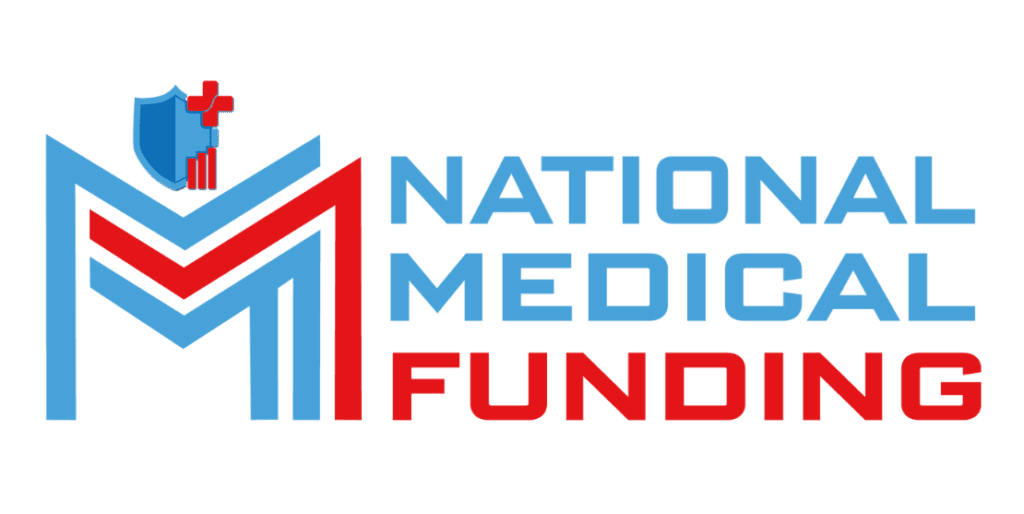
Beyond Equipment: 4 Strategic Ways Medical Pr
Running a successful medical practice only leads to gre...

Saturday and Sunday – CLOSED
support@nationalmedicalfunding.com



Running a healthcare practice has never been more complex. From navigating staffing shortages to adapting to regulatory changes, practice managers are under increasing pressure to deliver results—both operationally and financially. While hiring a medical practice management consultant can offer valuable insights, advice alone isn’t always enough. What many managers overlook is how pairing a consultant’s expertise with the right healthcare funding solutions can help unlock your practice’s full potential.
In this blog, we’ll explore how this powerful duo—consultants and short-term healthcare loans—can fuel smarter decision-making, boost operational performance, and deliver lasting improvements in patient care.
Let’s face it: even the best consultants can only do so much without the resources to bring their recommendations to life. While they can identify inefficiencies, recommend tech upgrades, and map out growth plans, implementation often requires funding. That’s where healthcare funding solutions step in.
Short-term loans offer secure finance options that allow practice managers to move from strategy to action. If your consultant suggests hiring additional staff or investing in new software, you can easily calculate loan needs using a lending calculator. This way, you stay financially prepared without draining your cash reserves.
Every practice has inefficiencies—some obvious, others buried under years of “we’ve always done it this way.” Management consultants are skilled at identifying these weak points, from scheduling conflicts and poor billing practices to lackluster marketing.
The problem? Diagnosing issues is just step one. Fixing them often requires resources, especially in the competitive health care environment. That’s why aligning consultant recommendations with flexible funding can help you act fast and get measurable results.
Want to know how funding and data work together? Check out Mastering Your Practice’s Financial Pulse: How Healthcare Financing Complements Analytics for Strategic Growth
Take the example of a dermatology clinic in the Midwest. After hiring a management consultant, they received recommendations to upgrade their EHR, streamline billing, and expand to weekend hours.
They loved the plan—but didn’t have the cash flow to implement it. By working with a healthcare lender, they quickly secured funds and rolled out the changes. Within three months, patient volume increased by 20% and collections improved dramatically. The takeaway? With the right capital, consultant strategies become actionable.
Practice managers often get caught in a common dilemma: “We need better systems—but we can’t afford them yet.” The truth is, waiting for the perfect time can stall progress indefinitely.
Instead, smart managers use short-term loans to align timing. With the help of a lending calculator, you can estimate payments and calculate loan terms that work within your budget. This creates breathing room to invest in improvements without jeopardizing financial stability.
Learn more about how practices are using loans during seasonal dips in The Smart Practice Manager’s Guide to Using Healthcare Loans During Seasonal Revenue Swings

Consultants vary in expertise—some specialize in workflow design, others in marketing, and some in revenue cycle optimization. When selecting a consultant, ensure their strengths align with your top pain points.
Likewise, choose a funding partner that understands health care and offers flexible loan structures. A lender like National Medical Funding understands practice cycles, claims delays, and reimbursement risks.
Curious if healthcare lending is the missing piece in your practice strategy? Read Can Healthcare Lending Help Practice Managers Drive Operational Success and Growth?
Once you’ve paired a consultant with loan-backed implementation, tracking progress is key. Set benchmarks based on the consultant’s plan and align them with your loan repayment timeline.
Metrics like patient wait times, staff turnover, revenue per visit, and claim denials are great indicators. If you see measurable improvement, you know your investment was worthwhile.
Before diving into consultant-guided upgrades, estimate how much funding you’ll need. Think of this as reverse-engineering your goals. Whether it’s a $15K tech upgrade or a $50K expansion, you’ll want to map costs and assess repayment schedules.
Use a lending calculator to determine affordable loan amounts. Most platforms will help you calculate loan durations, interest, and monthly payments based on your inputs. It takes minutes—and can save you from financial guesswork later.
One common misstep is using loans to fund plans that aren’t fully fleshed out. If a consultant’s strategy lacks clear ROI, step back and reassess. Don’t rush into funding improvements just for the sake of change.
Also, avoid choosing the first lender you find. Compare rates, read reviews, and ask about industry experience. You want a partner in secure finance, not just someone handing out money.

The beauty of pairing consultants with funding is that it enables long-term improvements using short-term tools. While your loan might only last 12–24 months, the systems and strategies you implement could shape your practice for years.
View this partnership as a stepping stone—not a one-time fix. Once you see the benefits, you may even plan ongoing updates with this model in mind.
From changing payer models to tech disruptions, health care is evolving fast. Practices that adapt quickly will thrive. Combining consulting with rapid access to capital gives you agility—something many of your competitors may lack.
Want to see how niche practices are evolving fast? Check out Navigating Change in Specialty Care: How Healthcare Loans Empower ENT and Niche Practices to Adapt and Thrive
Step | Action Item | Tool/Resource |
1. Identify Weakness | Hire a management consultant | Consultant Network |
2. Prioritize Improvements | Create an action plan with clear ROI | Consultant Strategy Document |
3. Estimate Costs | List all expenses (staff, software, equipment) | Budget Worksheet |
4. Calculate Loan | Use a lending calculator to define your loan needs | Online Lending Calculator |
5. Secure Funding | Choose a lender with healthcare funding solutions | National Medical Funding |
6. Implement Changes | Apply consultant plan using loan proceeds | Project Timeline |
7. Track Progress | Use KPIs to monitor operational and financial improvement | Dashboard/Consultant Check-ins |
Q1. Should I hire a consultant before or after securing a loan?
Ideally, hire the consultant first to identify needs, then calculate funding based on their plan.
Q2. What’s the average loan amount needed for consultant-driven upgrades?
Anywhere from $10,000 to $75,000, depending on scope.
Q3. Are healthcare loans risky?
Not when used wisely. Always review terms and use a lending calculator to estimate your costs.
Q4. Can I use loan funds for marketing or HR needs?
Absolutely! As long as it supports your operational or growth strategy.
Q5. Will a lender understand the unique needs of my practice?
If you choose a firm like National Medical Funding, yes—they specialize in health care practices.
Consultants bring ideas. Funding brings action. Together, they fuel momentum.
By pairing expert insight with reliable financial tools, you’ll stop waiting for the “right time” and start building the future of your practice today. Whether you’re streamlining operations, investing in staff, or growing into a new location—secure finance gives you the flexibility to move fast and with confidence.
So don’t go it alone. Work with consultants and funding partners who understand your vision.
And for more insight, explore Why Medical Practices Are Turning to Short-Term Healthcare Loans for Cash Flow Resilience.
Running a successful medical practice only leads to gre...
Understanding the Compensation Conundrum in Healthcare ...

Fuel your medical practice’s growth with financial solutions tailored to your needs. We’re here to support independent practitioners and group practices with strategies built for success.


Mon Fri: 8:00am – 6:00pm
Saturday: Closed
Sunday: Closed
Copyright © 2025 National Medical Funding